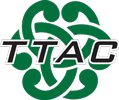|
January 2014 |
 |

TTAC Region 4 at GMU |
|
|
A news brief linking people and resources to support quality practices in the education of all students |
|
For the 2013-14 school year, we have updated the format of our TTAC newsletter. All subscribers will now receive a news brief of information and resources via email once a month from September through May, excluding December. Each news brief will highlight a key topic in education related to supporting the learning needs of all students. |
|
 |
| |
Priming and practicing procedures can create safe classroom environments that promote successful high stakes test performance.
Familiarity with content and test formats builds confidence, reduces test anxiety, and helps students think about how to approach different test items.
|
| |
 |
|
Be ready to prime and implement proactive strategies that will enable students to access and achieve in both classroom and test-taking contexts.
- Prime students by adequately preparing them so they can experience success.
- Proactively model and expose students to environmental factors in the learning space (examples: test format, classroom setup, physical boundaries, rules and procedures for instruction or a test).
- Provide a consistent visual or vocal cue that indicates the presentation of important information, practice, or process. This cue allows students to prepare their brains for incoming information (examples: bell, song, movement, visual sign, a designated place, posture).
- Prime positive learning experiences by:
- Explaining the purpose for the particular practice,
- Modeling the practice,
- Providing multiple activities of guided practice, with teacher support,
- Providing multiple opportunities for independent practice with corrective feedback.
REMEMBER: The better prepared students are, the less "threat" there will be in the learning or assessment situation.
(Allen, R.H. (2002). Impact teaching: Ideas and strategies for teachers to maximize student learning. Boston: Allyn & Bacon.) |
|
 |
|
Set the stage for successful high stakes test performance by embedding a few strategies in your curriculum regularly throughout the year.
Because test performance is highly related to reading ability, set a target to improve students’ reading competence, no matter what content you teach. Incorporating these practices throughout the year will boost students’ approach to a variety of reading requirements on tests.
- Encourage purposeful integrated reading, writing, and discussing to make connections between content areas as well as real life applications.
- Teach reading comprehension strategies such as main idea, inference, and self-questioning.
Direct instruction in a few test-taking strategies will also help students prepare for high-stakes tests. After being modeled and practiced during the instructional stage, these strategies should be supported and embedded throughout the school year:
- Looking over the entire test quickly to determine how much time to spend on each section.
- Skipping questions that you don’t know the answers to and returning to them after you complete the rest of the test.
- Avoiding answers that include the words "all," "none," "always," or "never."
- Omitting one or two obvious wrong answers and focusing on the remaining choices.
- Re-reading material in texts, tests, and questions to clarify information.
- Practicing necessary skills for taking a variety of tests on the computer.
- Practicing a variety of test formats. Guide students to recognize and understand the process for different formats and vary these in your instruction.
|
|
 |
|
For more information and ideas, go to:
|
|
|
|
This news brief is a collaborative effort of the Virginia Department of Education Training and Technical Assistance Centers at George Mason University and James Madison University. This issue was prepared by the staff of the VDOE TTAC at James Madison University. For questions about the content, please contact Judy Bland, Kandy Grant, or Kendal Swartzentruber at 540.568.6746. |
|
|
|
Contact Info:
Address: MSN 1F2
4400 University Drive
Fairfax, VA 22030
Phone: 703.993.4496
Fax: 703.993.4497 |
|

|
|
Subscribe | Unsubscribe |
|





